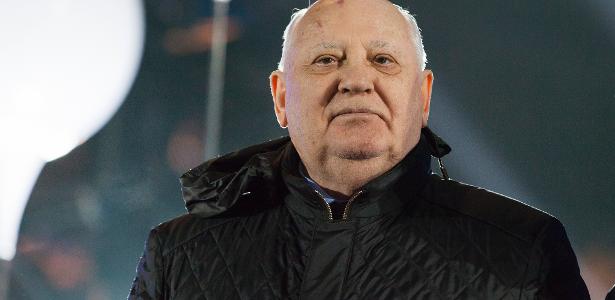Having buried the Soviet Union, Mikhail Gorbachev became the first leader to play a public figure role in modern Russian history after leaving the Kremlin.
For many years, tsars and then Soviet leaders died in office or, as in the case of General Secretary Nikita Khrushchev, spent the rest of their lives in ostracism after being deposed.
For nearly three decades, Gorbachev built his life after power as follows:
advertisement
Gorbachev took part in advertising campaigns for Western brands to raise money for his foundation.
The most famous of these appearances was a Pizza Hut commercial that showed him walking down Red Square before joining an American chain franchise.
At the end of the ad, pizzeria customers, apparently discussing the legacy of Gorbachev’s reforms, thank him for bringing Pizza Hut to Russia.
In a 2007 campaign for luxury brand Louis Vuitton, she showed herself looking at the Berlin Wall from a car with a branded bag and the slogan “A journey brings us face to face with ourselves”.
failed return
Gorbachev proposed a centrist platform in the 1996 presidential election, but received less than 1% of the vote.
His old rival, Boris Yeltsin, won the election after gaining the support of oligarchs who control the media, despite appearing to be intent on single-digit voting in the polls.
Gorbachev helped found a short-lived Social Democratic party at the turn of the millennium, but never again ran for president.
international stage
The former president followed the example of many Western heads of state, making lucrative tours abroad, establishing a foundation bearing his name, and writing his memoirs.
In 1992 Gorbachev also founded the international environmental NGO Green Cross. Long after leaving power, he continued to meet with world leaders in support of ecological causes.
In 2011, the former Soviet leader celebrated his 80th birthday with a charity gala presented by Sharon Stone and Kevin Spacey at London’s Albert Hall, with tribute rights to Bono and Bill Clinton.
Press
The man who initiated the “Glasnost” (opening) process was an early investor in the opposition newspaper Novaya Gazeta in the 1990s.
The broadcast became a platform for dissident voices during President Vladimir Putin’s administration, and many of its members were killed for reporting, including investigative journalist Anna Politkovskaya.
Gorbachev continued to give interviews and comment on global issues until the end of his life.
Novaya Gazeta, for which its editor-in-chief Dmitry Muratov won the Nobel Peace Prize last year, suspended its operations at the end of March until Moscow’s military intervention in Ukraine ended.
Russia’s communications regulator had requested the suspension of Novaya Gazeta’s website and print edition in July.
Family
The great tragedy of Gorbachev after his departure from power was the loss of his wife, Raisa, who died of leukemia at the age of 67 in 1999.
Gorbachev spent his later years in a modest country house west of Moscow; they lived here with Raisa when they moved to the capital years ago.
According to press profiles and documentaries, she lived there with a maid and a small security team, and regularly traveled to Moscow to attend events and visit her foundation.
source: Noticias




